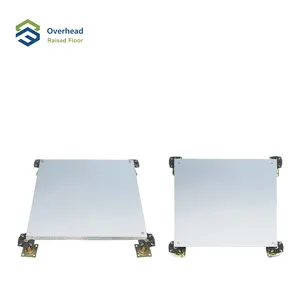


















Antistatic raised floors are a specialized solution designed to mitigate the risks associated with electrostatic discharge (ESD), particularly in environments where electronic equipment is prevalent. This flooring category encompasses a range of materials and designs, each tailored to serve specific industrial needs while ensuring the safety and longevity of sensitive electronic devices.
The variety of antistatic raised floor options includes materials such as PVC, rubber, and resin, each with distinct properties and anti static raised floor specifications. These specifications are crucial in determining the suitability of a floor type for a particular environment, such as anti static flooring for server room installations, where precision and reliability are paramount.
The application of antistatic raised floors extends across various sectors. In the tech industry, anti static raised access floor systems are integral to server rooms and data centers. The healthcare sector benefits from these floors in operating theatres, where ESD can affect sensitive medical equipment. Similarly, the automotive and aerospace industries rely on these flooring systems to safeguard their precision engineering environments.
A key feature of raised floor anti static systems is their impedance levels, which are carefully calibrated to prevent ESD damage. These floors offer advantages such as improved air circulation and the ability to conceal cables, enhancing both functionality and aesthetics. Additionally, options like anti-static carpet tiles provide insulation while maintaining ESD protection.
The materials used in antistatic raised floor systems are selected for their durability and ESD prevention capabilities. Anti-static epoxy tiles, for instance, are known for their robustness and long lifespan, making them a practical choice for areas with heavy foot traffic. Rubber and PVC options offer resistance to chemical spills and fire hazards, contributing to a safer workplace.
When selecting an antistatic raised floor, considerations such as hygiene, slip resistance, and ease of cleaning are paramount. It is essential to match the floor type to the specific requirements of the environment it will be used in, ensuring optimal protection against ESD and contributing to a secure and efficient workspace.